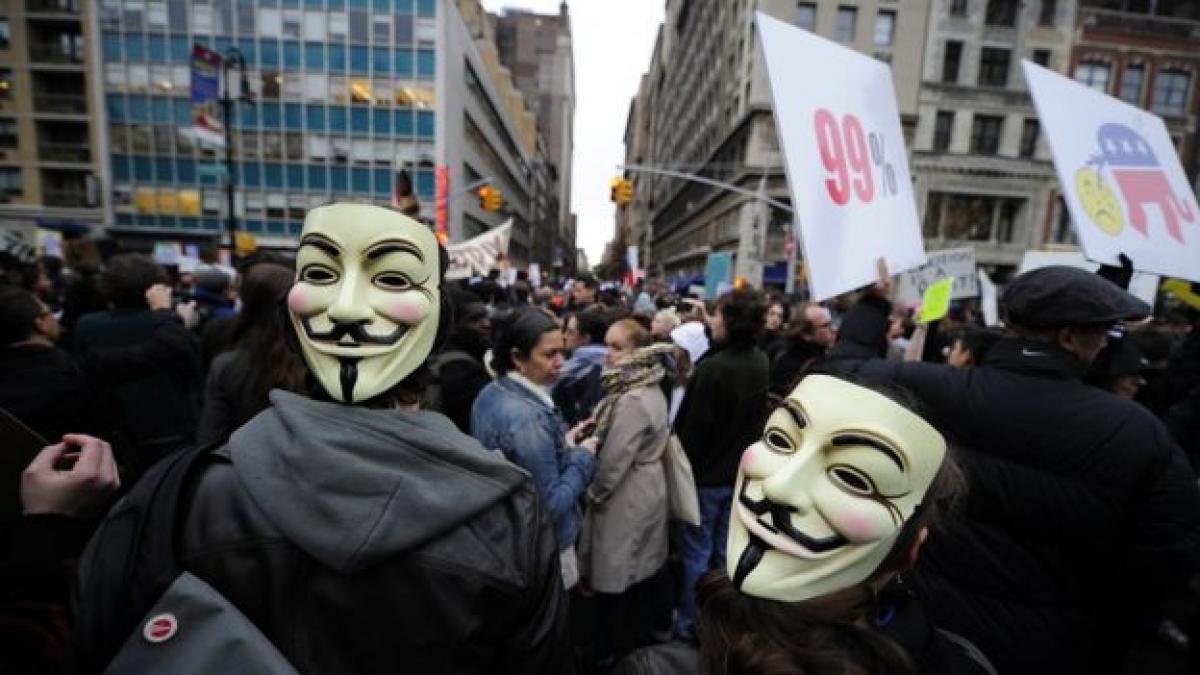Inequality wreaks havoc on global peace

The United States presidential elections are no longer merely an internal affair of a nation. The whole world is keeping a close eye on the elections that will be held on November 8th 2016.
The United States presidential elections are no longer merely an internal affair of a nation. The whole world is keeping a close eye on the elections that will be held on November 8th 2016. The new president will be expected to provide solutions to a number of global issues ranging from international terrorism, armed conflicts, nuclear armament, to the management of the world's energy resources. The world's economic problems will be another important item on the agenda of the 45th President of the United States. The gravest economic matter among these issues is the income equality that is growing rapidly throughout the world. In other words, the choice of the people of the United States - which forms the world's largest economy - will have a direct impact on the wealth of the poorest nations in the world in a sense.
Today, a large part of the world's population struggle for their lives under very harsh conditions. A total of 1.5 million people are without access to electricity. The main causes of death in Africa are diseases for which the Western world has already come up with solutions, such as cholera, lower respiratory tract illnesses or prenatal infections. One out of every seven people survived on $1.25 a day in 2015: For that reason, poverty is indeed the most important problem in the world. Whereas 1% of the population owns about half of the wealth in the world (which amounts to $250 trillion dollars) the other half of the wealth is shared by the remaining 99%. The total wealth of 1,200 billionaires in “The World’s Billionaires” list of Forbes amounts to a staggering $4.5 trillion dollars. The leading 62 people in that list own as much wealth as the poorest 3.5 billion combined. These are just a few examples of such comparisons; however, it is obvious that our world, full of wars and conflicts, cannot tolerate this inequality any further.
Income inequality and social justice have become more of an issue throughout history. The devastating effects of income inequality occasionally manifest themselves with severe consequences. One of the greatest indications of income equality is the coexistence of very rich countries and very poor countries at the same historical period in the world. The leading countries in the world in terms of the level of income are the United States and the United Kingdom with its similar economic system. In history, the United States saw a growing trend in income inequality in the 1840s and then again in the 1920s; although there was a decrease in income equality, which lasted about fifty years, nowadays with a new transformation, the gap between the rich and the poor keeps widening once again. The business models based on the “winner takes all” philosophy created by mega-capitalism, constitute the source of the wealth owned by this 1%. Today, the world’s economic policies are determined by this rich minority, so the ambition to become richer takes precedence over the concepts of social solidarity and equality. The countries that cave in to these policies have had to reduce capital gains taxes. The markets of such countries are now controlled by monopolies and semi-monopolies. The wealth of the world is distributed through financial manipulations by loosening anti-trust laws. This situation ignited the fires of many alternative movements which seek the rights of the middle class, such as the Arab Spring or the Occupy Wall Street movement.
“The Occupy Wall Street” movement achieved to call the public attention of the United States to income inequality with their slogan “We are the 99%”. This radical movement enabled Bernie Sanders, who is a presidential candidate for the democrats, to become the defender of the people suffering from income inequality. The wealthiest 20% of the United States with one of the most powerful economies in the world owns the 85% of the entire wealth whereas the remaining 15% is distributed among 250 million people. It should be remembered that there are a great many people who live on streets in the United States in spite of all the wealth. The poor is forced to pay for their illnesses not only in the United States but also worldwide; and those who cannot afford for cancer treatment are being left to die. The diseases prevalent in the third world countries such as Ebola had failed to be a source of concern by the rich countries for a long time; the research on the treatment methods for the disease was initiated after the death of thousands of people.
All over the world, income inequality has a gender discriminating feature. Not only are 445 of the richest 500 people in the world men but 75% of the people living below hunger limit are women and children.
The world should not be a place where the culturally deprived receive less education, less health and security services, which consequently causes them to grow poorer. The people oppressed under hyper- capitalism will sink deeper into hunger and the number of people who feel they simply have nothing to lose will increase further day by day. The Occupy Movement organized street demonstrations in a total of 34 developed countries in the last ten years; some of them were peaceful whereas others ravaged the streets.
The whole picture reflected by the figures given here is certainly tragic in real life. These figures actually represent an African child starving to death, a Vietnamese woman struggling with illness due to malnourishment, an Arab family drowned at sea while trying to escape war, or a worker in North Korea surviving on a handful of rice. However, this world is the common home of seven billion people.
Nobody can afford to say “As long as I am able to live my life as I wish, the rest of the world is no concern of mine.” It should be always remembered that this flame of egoism concerning the mundane interests of people is fierce enough to scourge the entire world. People of reason and conscience should ally with each other in order to extinguish this flame of egoism. However, such an alliance should not be formed to spill out hatred against the rich, to terrorize people or merely complain of income inequality, but to produce a reasonable and conscientious solution. It is glaringly obvious that daunting and ignorant systems that aim to ruin the rich and the middle-class people, such as communism, have brought about tremendous disasters. If the goal is to ensure equality in the economy, it is necessary to establish a rational and moral system where the wealthy support the poor willingly and gladly. This is easy to achieve as long as the rulers act in a conscientious manner through which they could take sides with those who are in the right rather than the powerful and give up looking after their realpolitik or purely material calculations.
By:Harunyahya
The writer has authored more than 300 books translated in 73 languages on politics, religion and science. He may be followed at @Harun_Yahya and www.harunyahya.com



















